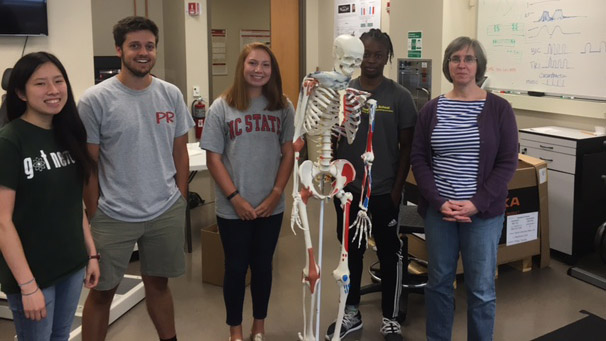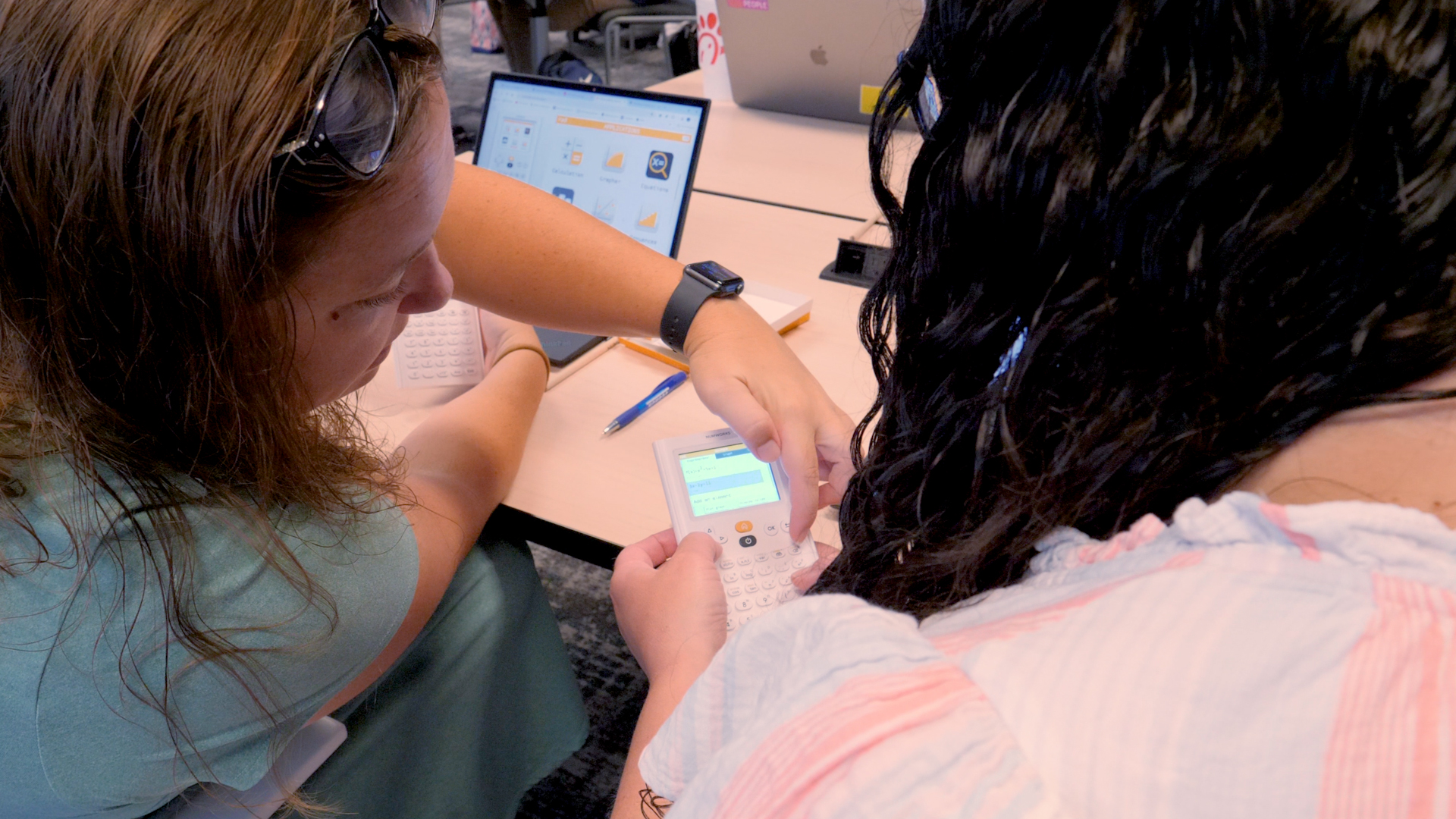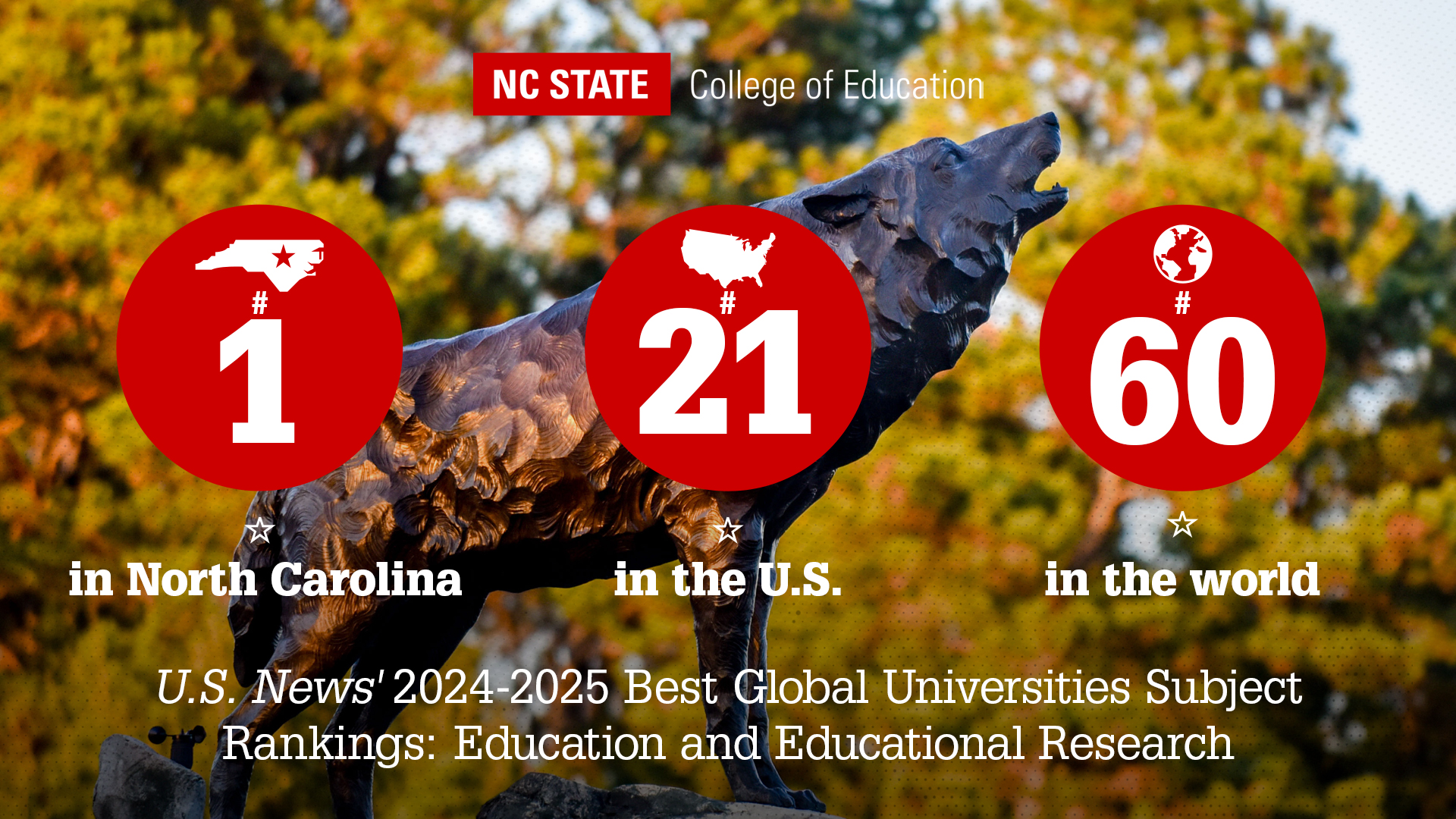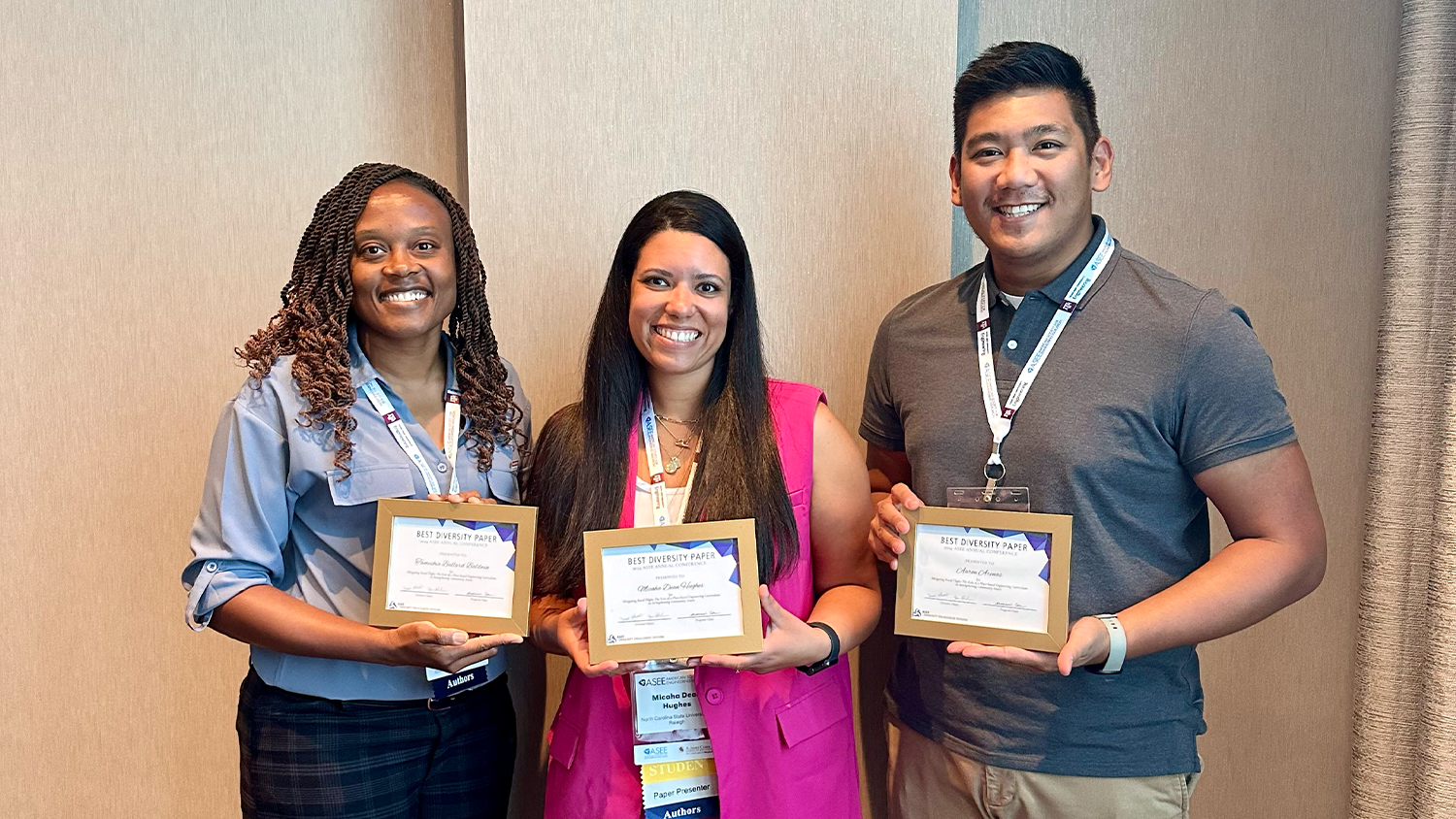Spotlight on Elementary Education Major Anna Schlesinger

The College of Education creates a well-rounded undergraduate experience that prepares students to lead 21st century classrooms. Just ask Anna Schlesinger, a sophomore majoring in elementary education.
This summer, Schlesinger participated in the Research Experiences for Teachers program, which gives pre-service and current teachers the opportunity to engage in science and engineering outside the classroom. We spoke with Schlesinger about RET and the importance of technology in improving learning outcomes.
Can you tell us more about Research Experience for Teachers and how you got involved in the program?
The Research Experience for Teachers program (RET) is a grant funded by the National Science Foundation to enhance engineering concepts in the K-12 classroom setting. At NC State, we are working in three labs made of diverse groups. Each RET group is composed of an education undergraduate student, two engineering undergraduates, a teacher and a community college faculty member. I got involved in the program via an email announcement sent out by the College of Education mentioning the program. Since the elementary education major is science, technology, engineering and mathematics (STEM)-focused, I knew that this program would be a great fit for me. Both of my parents and one of my brothers are engineers, so I’ve always wanted to be able to gain insight into what their careers are like and how it can relate to my future career as a teacher.
Why is cross-disciplinary experience important in developing pre-service teachers with a well-rounded skill set?
It’s important to have cross-disciplinary experience as a pre-service teacher because you never know what you will have to experience as a teacher. As an elementary school teacher, I will not be teaching just one subject. I will have to be able to know about many topics and be able to connect them. As a teacher, you’re who your students look up to and you have to be able to show them that they can do whatever they put their mind to.
If they want to be an engineer, but you know nothing about engineering, how can you really help them? In life, you don’t use math and language arts as separate things – everything is connected. Showing students that all subjects overlap is important. I think getting a wide range of experience helps my future students just as much as it helps me. As a pre-service teacher, it is important to have a well-rounded skill set to find what you are most passionate about, whether that is STEM education, the arts or something else. It is also important to be able to show your future employer the skills you have developed and that you understand how to implement them. I think it is better to be good at many things than to only know how to do one thing.
What have you learned so far from your experience in the program? How do you plan to integrate this experience into your classroom teaching?
This summer I am working in Dr. Saul’s movement biomechanics lab. I have never experienced engineering in a lab setting, so everything is new to me. I’ve learned how to process data via various computer programs to see what muscles are being used in a subject. I’ve learned how models can be made on the computer and then can simulate movement so that engineers can see what is wrong in their movement. I’ve learned that surgery simulations can be done to see if a surgery would be biomechanically beneficial for someone. I’ve learned and experienced with various tools used in the lab such as EMG, motion capture, muscle stimulation and more. We have played with 3D printing and gone through the engineer design process of coming up with a solution, testing it out and making changes.
There are many ways that I can integrate this experience into my future classroom. I think the engineering design process is one of the best ways I can integrate engineering into my classroom. Having kids go through the process of thinking of an idea, testing it out, realizing failure is okay, and trying a new idea is important because it allows them to think deeper than just getting the right answer the first time, which isn’t what happens in engineering. I am in the process of creating a third grade lesson plan with various activities that I have thought of while being in the lab. They revolve around the human skeletal and muscular system since that is something we have focused on in the lab. The curriculum developed will go through a publishing process via Teach Engineering (teachengineering.org).
How does the College of Education prepare pre-service teachers to work with students with special needs/differently abled students?
The College of Education does a great job preparing pre-service teachers to work with students with special needs/differently abled students. Faculty remind us that just because one student has a certain learning style doesn’t mean a certain teaching technique will work for every student. We are also reminded that every classroom is different and you have to find what learning methods work for your individual classroom. There is also a class taken the fall of our senior year on teaching special needs children that I am very much looking forward to.
How can teachers integrate technology into the classroom to improve the experience and learning outcomes of students with special needs/differently abled students?
Earlier this summer, we had a visually impaired and blind (VIB) camp come into our lab for a tour. The group consisted of about nine high school students with some level of a visual impairment. We had different stations set up where they could experience our lab more tactically than visually. A lot of the equipment has some sort of audio feature or is tactile that allowed us to do great hands-on activities. I think this is just one example of how all different kinds of technology can be adjusted to meet students needs.
Technology is very versatile and it is important that teachers take advantage of that. Teachers can use technology to enhance regular topics and make them more applicable to students. There isn’t a “one size fits all” when it comes to technology; you have the freedom to use technology as you please. I think using technology is the best way to help students with special needs, because it can often be easier to grasp than doing something on a sheet of paper.
Learn more about the Research Experiences for Teachers program and the College of Education’s Bachelor of Science in elementary education.
- Categories:


